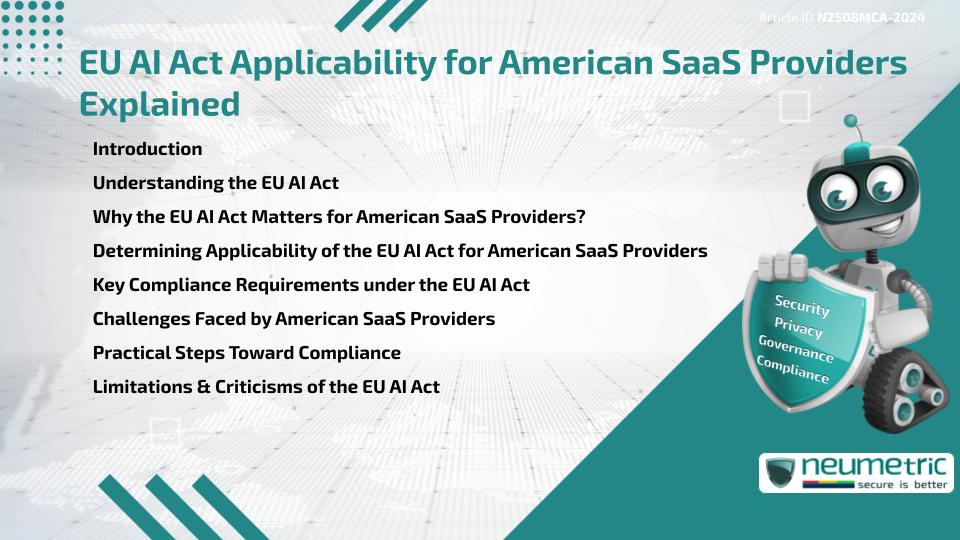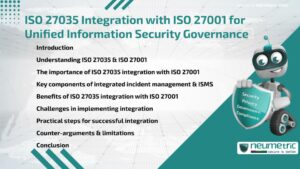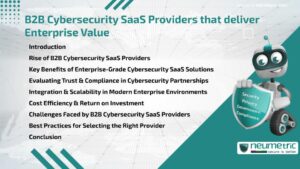Table of Contents
ToggleIntroduction
The European Union [EU] has introduced the Artificial Intelligence Act [AI Act], a comprehensive legal Framework governing the development, deployment & use of Artificial Intelligence. Its scope is not limited to European companies. Instead, it extends to non-European businesses, including American Software-as-a-Service [SaaS] providers, that make their AI-enabled services available in Europe. This makes the EU AI Act applicability for American SaaS Providers a pressing question for technology firms operating across borders.
In this article, we explore the fundamentals of the EU AI Act, its relevance for American SaaS Providers, the practical Compliance Requirements & the challenges involved. We also examine balanced viewpoints, comparing its strengths & criticisms, while providing practical steps to navigate its demands.
Understanding the EU AI Act
The EU AI Act is designed to create Trust & Accountability in Artificial Intelligence. It introduces a Risk-based Framework that categorises AI Systems into Unacceptable Risk, High Risk, Limited Risk & Minimal Risk. High-Risk systems face the strictest Compliance Requirements, such as Transparency, Risk Management & Documentation.
Unlike sector-specific laws, the AI Act applies across industries, ranging from Healthcare & Finance to Education & Recruitment. The legislation aims to harmonise rules within the EU market, while also influencing global AI Regulation through its extraterritorial reach.
Why the EU AI Act Matters for American SaaS Providers?
American SaaS Providers often deliver services globally & Europe is a significant market. If a SaaS platform uses AI features-such as Automated Decision-Making, Natural Language Processing or Facial Recognition-its developers & operators must consider whether their technology falls within the AI Act’s scope.
Even if a provider has no physical presence in Europe, offering AI-driven services to European users can trigger Compliance obligations. This is similar to how the General Data Protection Regulation [GDPR] extended Data Privacy Compliance beyond European borders.
Determining Applicability of the EU AI Act for American SaaS Providers
The EU AI Act applicability for American SaaS Providers depends primarily on:
- Location of Users: If European customers access or purchase the AI-powered SaaS product, the Act applies.
- Nature of AI System: High-Risk AI use cases, such as Biometric Identification or AI in Hiring, are subject to stricter rules.
- Distribution Channels: Even indirect provision of services through European resellers or partners can trigger applicability.
For instance, an American SaaS provider offering AI-based hiring tools must comply if those tools are used to evaluate European candidates.
Key Compliance Requirements under the EU AI Act
Once applicability is established, American SaaS Providers must comply with obligations depending on the AI System’s Risk level. Key requirements include:
- Conducting Risk Assessments & ensuring Safety.
- Maintaining Technical Documentation & Record-Keeping.
- Implementing Human Oversight in AI decision-making.
- Providing clear Transparency Notices for users.
- Registering High-Risk AI Systems in an EU Database.
These requirements align with the EU’s push for Trustworthy AI.
Challenges Faced by American SaaS Providers
Complying with the EU AI Act presents unique challenges:
- Complexity of Regulations: Interpreting legal definitions of AI Systems is not always straightforward.
- Operational Costs: Risk Management & Documentation requirements may increase Compliance expenses.
- Overlap with Existing Rules: SaaS Providers already complying with GDPR or sectoral laws may face overlapping yet distinct obligations.
- Cross-Border Enforcement: Ensuring coordination with European regulators requires additional resources.
Practical Steps Toward Compliance
To address the EU AI Act applicability for American SaaS Providers, businesses can follow these steps:
- Map all AI Systems integrated into the SaaS product.
- Classify each system according to the EU Risk Categories.
- Establish Internal Governance Teams to monitor Compliance.
- Document Risk Management & Testing Procedures.
- Engage with local European representatives for Regulatory Communication.
These measures resemble GDPR Compliance roadmaps & early adoption can reduce future regulatory Risks.
Limitations & Criticisms of the EU AI Act
While the EU AI Act is a landmark regulation, it has its limitations:
- Broad Definitions: Critics argue that the definition of AI is too wide & could capture simple statistical models.
- Innovation Concerns: Some claim that strict requirements may stifle startups.
- Global Enforcement Challenges: Ensuring accountability across jurisdictions is not always practical.
Nonetheless, many legal experts argue that clear Regulation may enhance User trust, giving compliant SaaS Providers a competitive advantage.
Conclusion
The EU AI Act applicability for American SaaS Providers is both significant & complex. Its extraterritorial nature means that offering AI-driven services to European customers, even without a physical presence, can create Compliance obligations. While Compliance requires resources, it also offers opportunities to strengthen trust & competitiveness in a highly regulated global market.
Takeaways
- The EU AI Act applies beyond Europe, impacting American SaaS Providers.
- Applicability depends on User location, AI Risk level & distribution methods.
- High-Risk AI Systems carry strict Compliance Requirements.
- Compliance challenges include regulatory complexity & operational costs.
- Early adoption of Compliance strategies reduces Risk & builds Trust.
FAQ
What is the EU AI Act?
The EU AI Act is a European legal Framework regulating Artificial Intelligence based on Risk categories.
Does the EU AI Act apply to American SaaS Providers?
Yes, if they offer AI-driven services to European users, even without physical presence.
How can SaaS Providers determine applicability?
By assessing whether their AI Systems are used in Europe & whether they fall under High-Risk categories.
What are high-Risk AI Systems?
They include AI in critical areas such as Healthcare, Recruitment, Education or Biometric Identification.
Do SaaS Providers need an EU representative?
Yes, for certain obligations, especially if offering High-Risk AI Systems.
What happens if providers do not comply?
Non-Compliance may lead to Financial penalties, reputational damage & restricted market access.
Is Compliance expensive for SaaS Providers?
Yes, implementing oversight, documentation & Risk Management can increase costs, especially for smaller firms.
Need help for Security, Privacy, Governance & VAPT?
Neumetric provides organisations the necessary help to achieve their Cybersecurity, Compliance, Governance, Privacy, Certifications & Pentesting needs.
Organisations & Businesses, specifically those which provide SaaS & AI Solutions in the Fintech, BFSI & other regulated sectors, usually need a Cybersecurity Partner for meeting & maintaining the ongoing Security & Privacy needs & requirements of their Enterprise Clients & Privacy conscious Customers.
SOC 2, ISO 27001, ISO 42001, NIST, HIPAA, HECVAT, EU GDPR are some of the Frameworks that are served by Fusion – a SaaS, multimodular, multitenant, centralised, automated, Cybersecurity & Compliance Management system.
Neumetric also provides Expert Services for technical security which covers VAPT for Web Applications, APIs, iOS & Android Mobile Apps, Security Testing for AWS & other Cloud Environments & Cloud Infrastructure & other similar scopes.
Reach out to us by Email or filling out the Contact Form…





